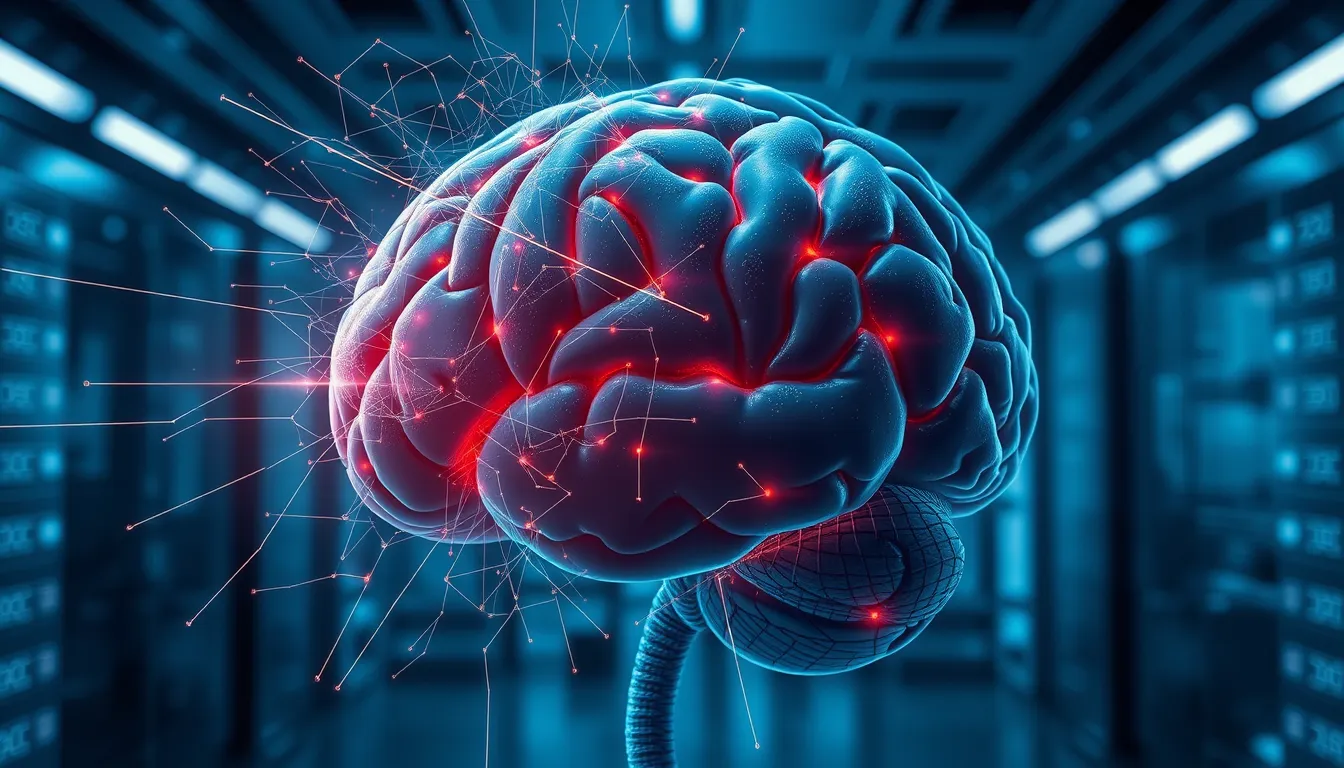Now Reading: MIT Study: Unveiling AI Brain Activity & Cognitive Impact
-
01
MIT Study: Unveiling AI Brain Activity & Cognitive Impact
MIT Study: Unveiling AI Brain Activity & Cognitive Impact

MIT Study: Unveiling AI Brain Activity & Cognitive Impact
In a groundbreaking study conducted by researchers at MIT, the complex relationship between artificial intelligence and human brain function has been brought to light. The investigation centered on AI brain activity and how prolonged interaction with advanced AI systems might be influencing our cognitive processes and neural pathways. This study not only deepens our understanding of emerging technologies but also raises important questions regarding our dependency on AI in everyday life.
Overview of the MIT AI Study
The researchers at MIT carried out a series of advanced experiments using neuroimaging techniques and controlled behavioral tests. Their primary goal was to assess if and how prolonged AI engagement affects brain function. Using state-of-the-art equipment, the study monitored changes in areas responsible for critical analysis, memory formation, and decision-making. This comprehensive approach allowed the team to thoroughly document variations in AI brain activity among participants.
Impact of Prolonged AI Interaction on Brain Activity
One of the most significant findings of the study is that frequent and prolonged interactions with AI systems can lead to a measurable reduction in brain activity. In particular, the research revealed that certain neural pathways experience a decrease in stimulation when users depend heavily on AI to make decisions or solve problems. The section below details these findings:
- Advanced neuroimaging revealed lower activity in regions responsible for deep analytical thinking.
- Behavioral tests confirmed that reliance on AI might diminish user engagement with complex problem-solving tasks.
- The study suggests that this reduced activity could be a direct consequence of bypassing traditional cognitive challenges.
These insights emphasize the importance of balancing AI use with practices that promote active brain engagement. The long-tail discussion on the impact of prolonged AI interaction on brain activity shows that while efficiency increases, there might be a trade-off in neural stimulation.
Cognitive Effects and Neural Pathway Reduction
The reduction in AI brain activity may be linked to the effortless delivery of information by AI systems. When individuals rely on AI for everyday tasks, they often perform cognitive tasks less intensively. This may result in a measurable drop in brain stimulation, potentially leading to what some researchers refer to as cognitive decline AI. The study’s findings indicate:
- A decrease in neural activity in regions tied to memory and decision-making.
- Lower engagement levels during tasks that normally require independent thought and critical analysis.
- Possible long-term effects on creative thinking and problem solving.
While these observations are concerning, they must be seen within a context of adaptation. The brain might be redistributing its resources, becoming more efficient in some tasks while compensating for reduced stimulation in others. However, this efficiency could come at the cost of diminished creativity and critical thought.
Strategies to Mitigate Negative Cognitive Impact
Experts suggest that adopting a hybrid approach could be the key to unlocking the benefits of AI without sacrificing brain health. Several strategies can be implemented to maintain a healthy balance between technology use and cognitive engagement:
- Schedule regular breaks from AI-driven tasks to allow your brain to rest and rejuvenate.
- Engage in activities that require deep thinking and problem solving, such as puzzles or reading complex material.
- Use AI tools that encourage interactive engagement rather than passive consumption of automated solutions.
These strategies are essential for anyone concerned about the long-term effects of digital habits. By actively managing AI interaction, users can help maintain optimal brain function and ensure that AI brain activity levels remain beneficial rather than detrimental.
The Broader Implications of AI on Cognitive Health
Beyond the immediate findings, the study prompts broader societal discussions. The implications of reduced AI brain impact extend into areas of education, workplace efficiency, and even daily decision-making. If over-reliance on technology continues unchecked, there could be a noticeable effect on overall cognitive vitality, leading to increased instances of cognitive decline AI.
It is crucial for developers and policymakers to consider these insights. Future AI systems could be designed with built-in features that challenge users to engage actively rather than passively. This might include interactive prompts, cognitive exercises integrated into the AI experience, or even scheduled downtimes that encourage offline mental activities.
Looking Forward – Balancing Technology and Cognitive Engagement
In summary, the MIT study offers invaluable insights into AI brain activity and its potential long-term effects on cognitive capacity. The key takeaways include:
- Prolonged AI interaction may reduce brain activity, particularly in critical areas involved in creative thought and decision-making.
- While lower activity might suggest increased efficiency, it may also indicate a risk for diminished cognitive functions if not countered by active mental engagement.
- Incorporating breaks and cognitive exercises into daily routines can help mitigate these effects.
Concluding Thoughts
As AI technologies continue to evolve, the balance between technological assistance and maintaining robust cognitive function becomes increasingly critical. The MIT study serves as a compelling reminder of the need for moderation and balanced interaction with AI systems. By understanding and monitoring AI brain activity, society can embrace the benefits of technological advancements while safeguarding the essential human elements of creativity, critical thinking, and problem solving.
This exploration into the impact of prolonged AI interaction on brain activity must inspire both users and developers to seek innovative methods that enhance cognitive engagement. With carefully planned strategies and a focus on active brain stimulation, the synergy between human intellect and artificial intelligence can be both productive and healthy for society.

























